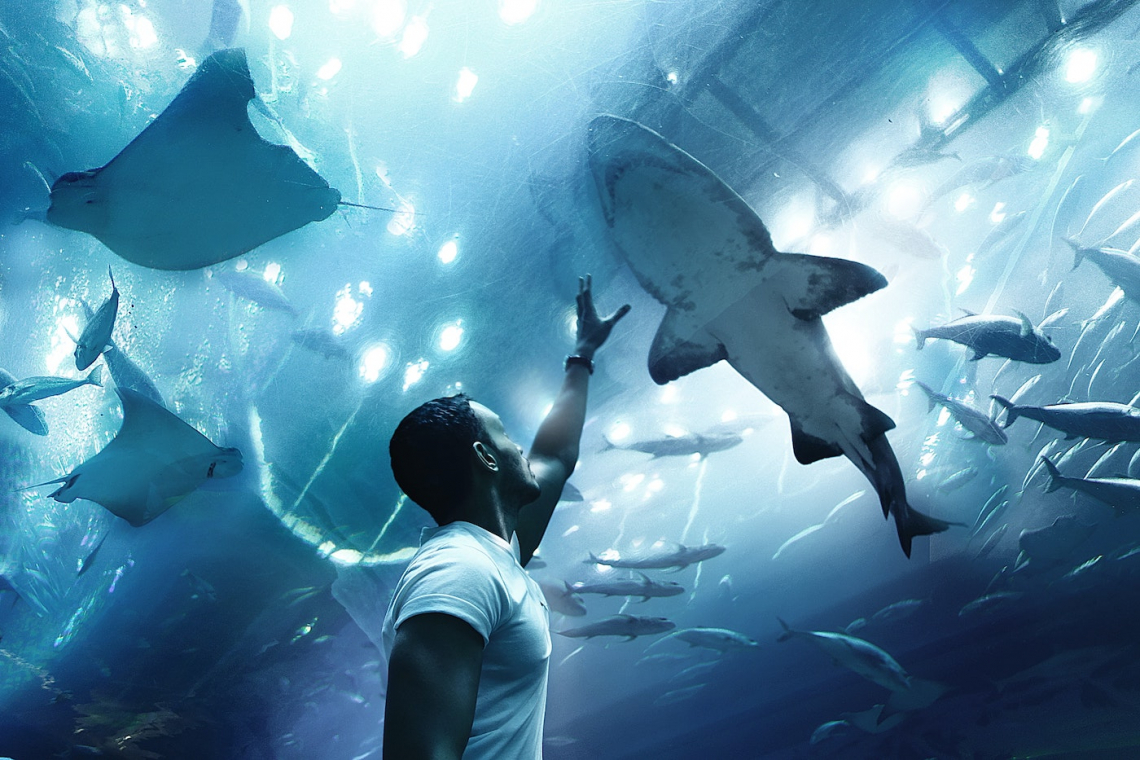Feared by most, sharks, the monsters of the ocean, face an uncertain future due to global overfishing. Of the 1000+ known shark and ray species globally, nearly one-quarter are classified as threatened with extinction. South Africa, with one of the largest populations of great white sharks, became the first country to totally protect them in 1991. The estimated total of the South African population of great whites is only between 353 and 522 individuals, making them far more scarce than the country’s well known rhinos.
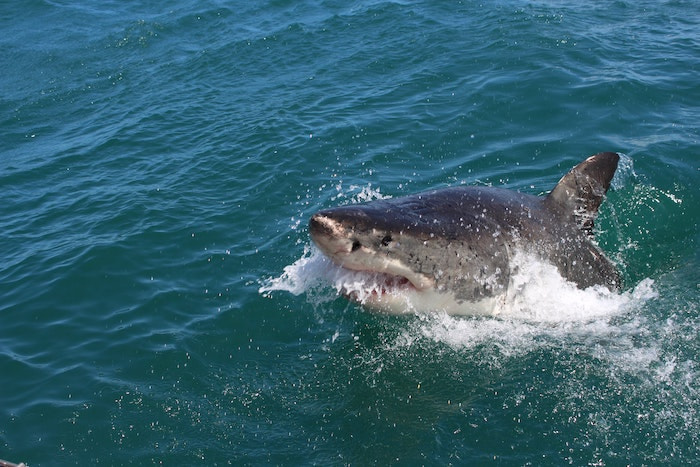
Sharks keep our largest and most important ecosystem healthy. They have sat atop the oceans’ food chain, keeping our seas healthy for millions of years. The oceans produce more oxygen than all the rainforests combined, remove half of the atmosphere’s manmade carbon dioxide, and control our planet’s temperature and weather. Our existence is largely dependent upon theirs. Furthermore, sharks keep other populations in check and prey on the sick and old. This prevents spread of disease and improves the gene pool—sharks ultimately maintain the overall genetic fitness of prey populations. Also, sharks are important to the economy with shark fisheries providing jobs and income for communities but, only if this is managed sustainably can we ensure these livelihoods in the future. The rise of ecotourism is further placing a financial value on the presence of sharks.
In July 2014, Operation Phasika was mandated by the South African governmentdesigned to boost economy growth and increase job creation with one of the outlets being utilisation of the ocean. As a result many fisheries were opened up along the coastline. One of these was the implementation of six demersal longline shark fishing permits in 2014, that would fish inshore areas between Cape Agulhas and East London primarily targeting smooth-hound sharks and soup fin sharks. Sharks are slow growing, slow to mature, have long gestation periods and produce relatively few young, making them very vulnerable to fishing. To the point where populations simply cannot replenish at the same rate to meet demand. Further, the loss of smaller shark populations will have a ripple effect for the larger shark species, which in turn, would lead to the collapse of entire ecosystems—this would be detrimental to us and future generations. Restoring sharks is key to improving the resilience of water bodies to climate change—one of the biggest challenges of our time.
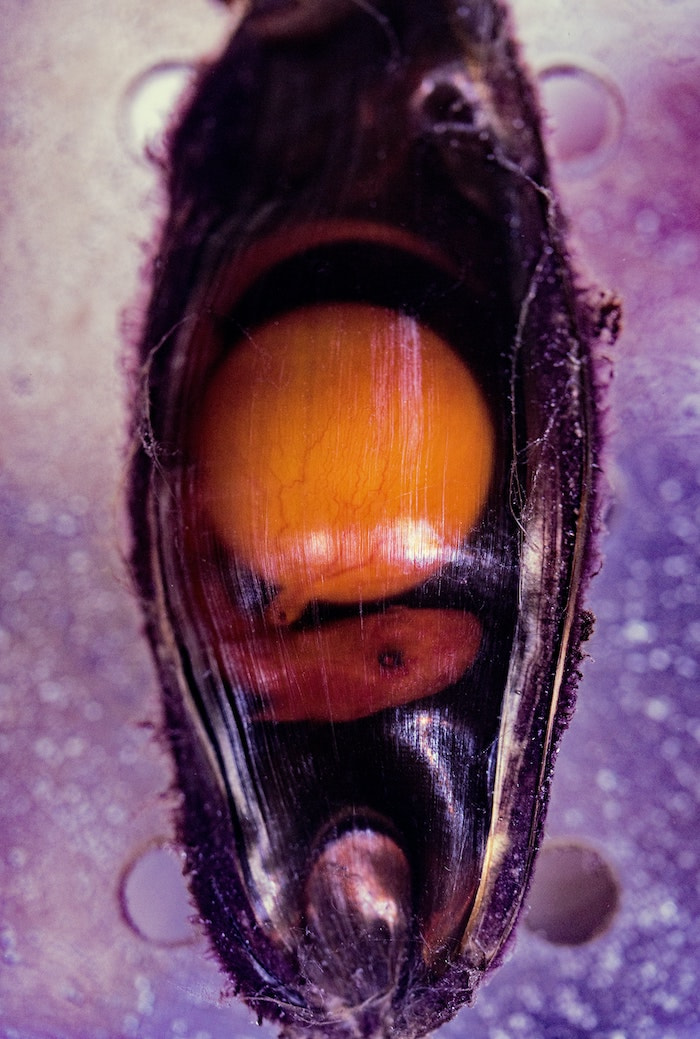
The fishery is currently restricted to a Total Allowable Effort of six vessels—the vessels are tracked by a vessel monitoring system that directly links to the fisheries management base station. These vessels fish for sharks by deploying a weighted line with numerous baited hooks that hang along the sea floor. May be a problem with by-catch turtles and line-fish, the extent of this problem can only be determined through an observer programme—this is something that is currently lacking within the fishery. There has hardly ever been a sustainable commercial shark longline fishery anywhere in the world, so maybe its time for the South African government to put an immediate moratorium on shark demersal long-lining. Instead South Africa should take responsibility in conserving and maintaining one of the world’s most diverse shark faunas—South Africa has 181 species (15% of world’s total shark species) of which, 34 species (2%) are endemic.
The controversial topic of shark-cage diving has raised the debate to whether ‘chumming’ (feeding/baiting the sharks) for human entertainment is ethical? It is believed that offering food to sharks will lead to them losing their natural survival instincts. In 2012, shark cage diving was outlawed in Western Australia after scientific studies along that coastline showed ‘chumming’ caused significant change in great white shark behaviour. It was also, made illegal in New Zealand in 2018 after pressure from the public to do so. If too many cage diving operators work simultaneously in one area, it could alter the behaviour of great whites causing an impact on prey populations and so, disrupting the delicate balance of marine ecosystems.
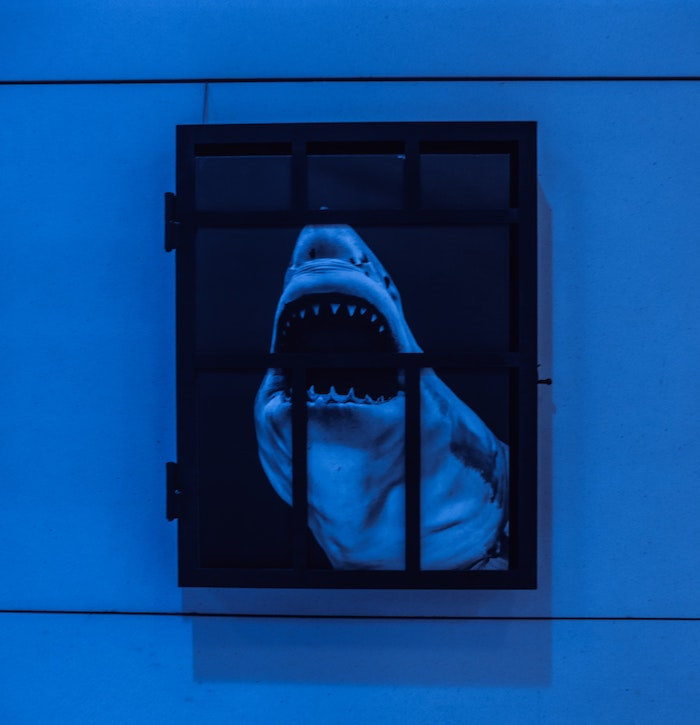
Although, cage diving has a huge demand from thrill-seeking tourists and creates jobs in the tourism industry, the experience is often unauthentic due to sharks, who are often by nature timid animals, repeating an unnatural situation over and over again. There are options to dive with other shark species without a cage that involves no ‘chumming’ which, makes for a natural, ethical, authentic and sustainable experience. Also, there's the possibility to catch a glimpse of a great white if you look across False Bay on a sunny day, or cruising by a seal colony. But, the pressure to make money with nature will always push the limits of nature.
Awareness and education is crucial to change perception of sharks from one of fear, to one of appreciation and respect for the benefits that sharks provide to ecosystems and economies. Despite the unwholesome reputation that great white sharks have acquired since 1975’s Jaws, they pose very little threat to humans. Statistically you stand around a 1 in 3,700,000 chance of being killed by a shark and, rarer even still when you consider that shark numbers are falling globally every year.
Awareness and education is crucial to change perception of sharks from one of fear, to one of appreciation and respect for the benefits that sharks provide to ecosystems and economies. Despite the unwholesome reputation that great white sharks have acquired since 1975’s Jaws, they pose very little threat to humans. Statistically you stand around a 1 in 3,700,000 chance of being killed by a shark and, rarer even still when you consider that shark numbers are falling globally every year.
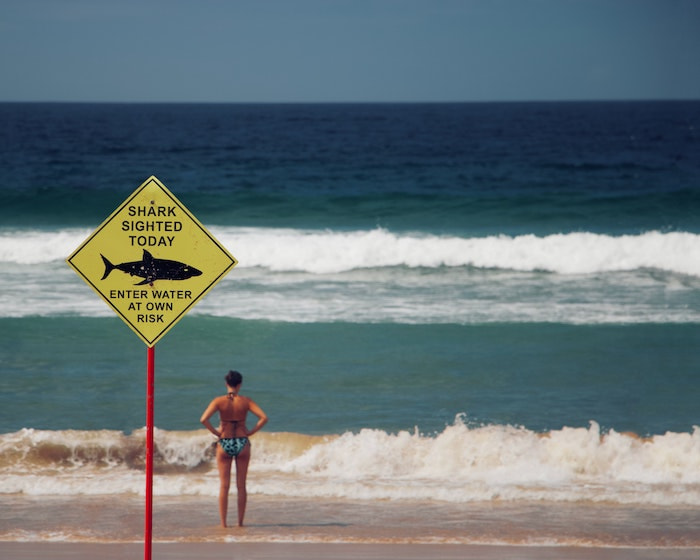
South Africa was the first country to protect great whites yet, there is a loophole allowing KwaZulu-Natal Shark Board (KZNSB) to kill the protected species. KZNSB is an organisation that maintains a ‘shark control’ programme using 37 shark nets and 107 drum lines that stretch along the coastline—Richards Bay to Port Edward. In a 30 year period, more than 33,000 sharks have been killed in the KZNSB’s shark killing programme —during the same 30 year period, 2211 turtles, 8448 rays, and 2310 dolphins were killed. There is no scientific support for the concept that culling sharks in one particular area will lead to a decrease in shark attacks or increase ocean safety. Not only should the practice be stopped with immediate effect and changed to eco-friendly sustainable practices, the great white shark should have the full protection that it was supposedly guaranteed in 1991 to ensure this vulnerable species isn’t lost from South African waters forever. Since March 2013, Fish Hoek shark exclusion net (eco-friendly shark barrier) has proven to be a cost effective, environmentally and socially responsible, non-lethal shark attack mitigation measure with strong public support. While, in Cape Town, the Shark Spotters programme has people watching the ocean, ready to alert swimmers to the presence of sharks. This is a non-invasive way to keep sharks and people separate.
Fins from up to 73 million sharks end up in the global fin trade every year. The demand comes from the traditional Chinese delicacy—shark fin soup which, dates back over a thousand years. It is popular as a prestigious dish served to impress guests, eaten at wedding celebrations and at New Year. Hong Kong is the shark fin trading hubaccounting for more than half of the world trade where, they consume an estimated three million kilograms of shark per year.
The practice of shark finning occurs far offshore away from reaches of enforcement vessels. Fins are cut off the sharks, often while they are still alive and the rest is thrown over board. Unable to swim properly, they suffocate or die of blood loss from their huge wounds—marine equivalent of elephant or rhino poaching. South Africa has a ban in place for shark finning, however, the country should consider implementing a fins attached policy across all of its fisheries. Along with having custom officers who can identify species being traded so, shark species under threat don't get overfished.
The practice of shark finning occurs far offshore away from reaches of enforcement vessels. Fins are cut off the sharks, often while they are still alive and the rest is thrown over board. Unable to swim properly, they suffocate or die of blood loss from their huge wounds—marine equivalent of elephant or rhino poaching. South Africa has a ban in place for shark finning, however, the country should consider implementing a fins attached policy across all of its fisheries. Along with having custom officers who can identify species being traded so, shark species under threat don't get overfished.
Having the privilege to swim with white and black tipped reef sharks was a phenomenal experience and, has allowed me to truly appreciate sharks. So many of us are afraid of sharks, when really we should be afraid of what will happen if they were gone. Do not allow movies or stories to cloud your judgement, as one would be a fool not to realise how precious these wonders of the ocean are!
So I ask you, are sharks the really monsters?
So I ask you, are sharks the really monsters?

